Trending:
Bengal's bombs: Children in crossfire of political violence
The explosion, which occurred under the jurisdiction of Birnagar-II Gram Panchayat in Kaliachak Block 1, is not a one-off tragedy. It is the latest entry in a grim ledger of incidents where crude bombs—often linked to local political rivalries—endanger the most vulnerable: children.News Arena Network - Kolkata - UPDATED: April 19, 2025, 02:41 PM - 2 min read

Representational image.
Bengal’s hidden bombs: Children caught in crossfire of political violence
The tranquil afternoon in Dinutola village—marked by bird-chirping and the gentle rustle of leaves in the warm sunlight—was abruptly shattered by a harrowing blast on Thursday. Nestled in West Bengal’s Malda district, the village became the scene of a tragic accident when five children, playing inside a long-abandoned house, mistook a crude bomb for a ball. As they tossed it, the device detonated with a violent force. An 11-year-old child was critically injured in the explosion, while four others sustained minor injuries. Yet, beyond the physical wounds, the emotional psychological scars may endure far longer, casting a lasting shadow over their innocence.
The explosion, which occurred under the jurisdiction of Birnagar-II Gram Panchayat in Kaliachak Block 1, is not a one-off tragedy. It is the latest entry in a grim ledger of incidents where crude bombs—often linked to local political rivalries—endanger the most vulnerable: children.
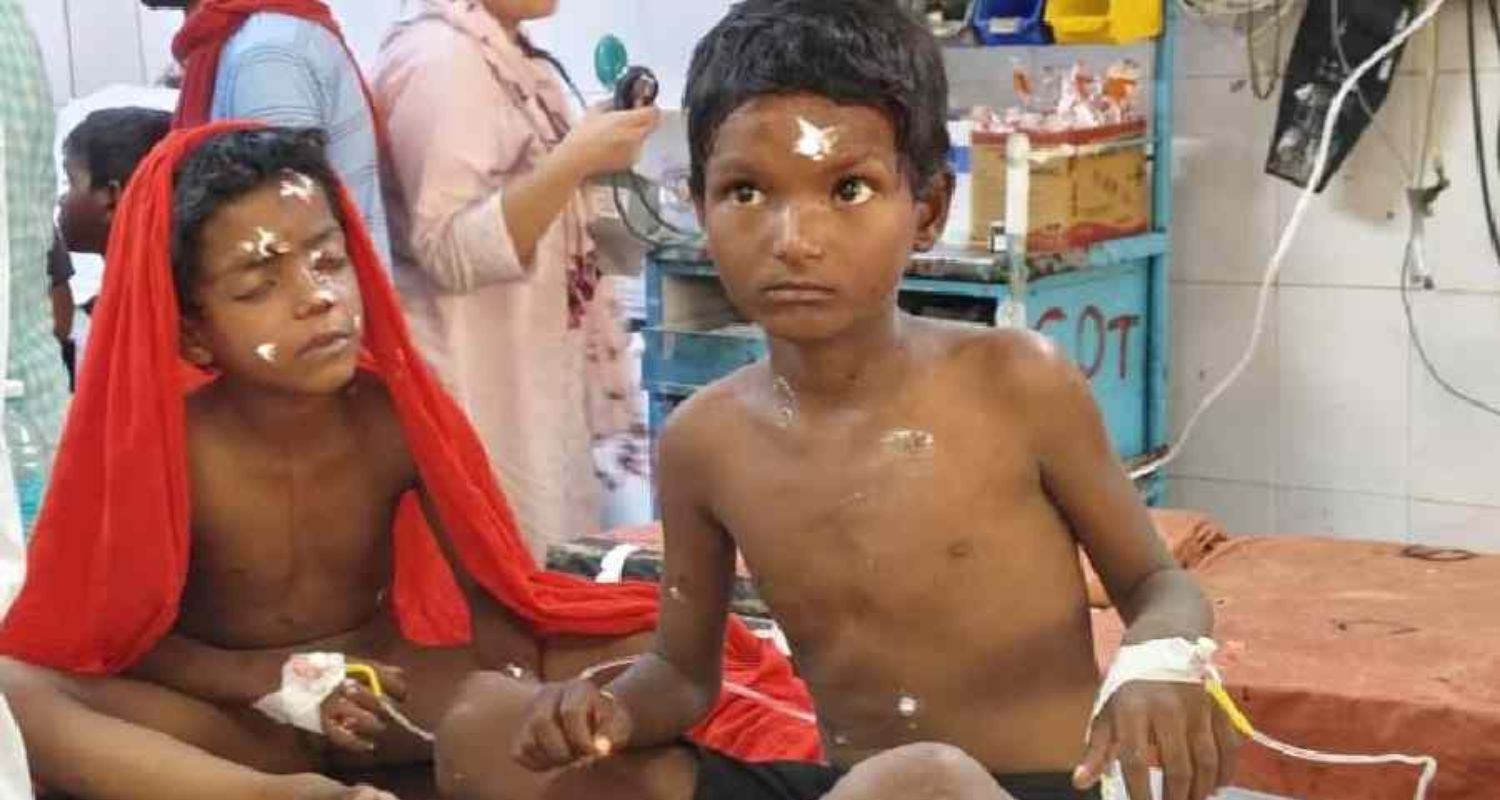
The children were playing in the ruins of a house once owned by a deceased man named Farman. With no dedicated playgrounds in the area, such structures often become informal gathering spots for village children. One of them found a round object, presumed it was a ball, and threw it to the ground.
What followed was a blast so loud it drew villagers from nearby fields. The children, unconscious and bleeding, were rushed to Seelampur Rural Hospital. While four were stabilised and sent home after first aid, one remains under intensive care.
Kaliachak police, accompanied by SDPO Faizal Raja, cordoned off the site. Though no additional explosives were recovered, officials confirmed that an investigation is underway. Local panchayat member Jahangir Alam speculated the explosive might have been hidden years ago during a land feud—part of a broader pattern in the region.
Barely 24 hours ago, two children met the same fate in Murshidabad’s strife-hit Shamsherganj area taking the count to seven in past 48 hours.
Children as collateral in Bengal’s explosive politics
This is not an isolated incident.
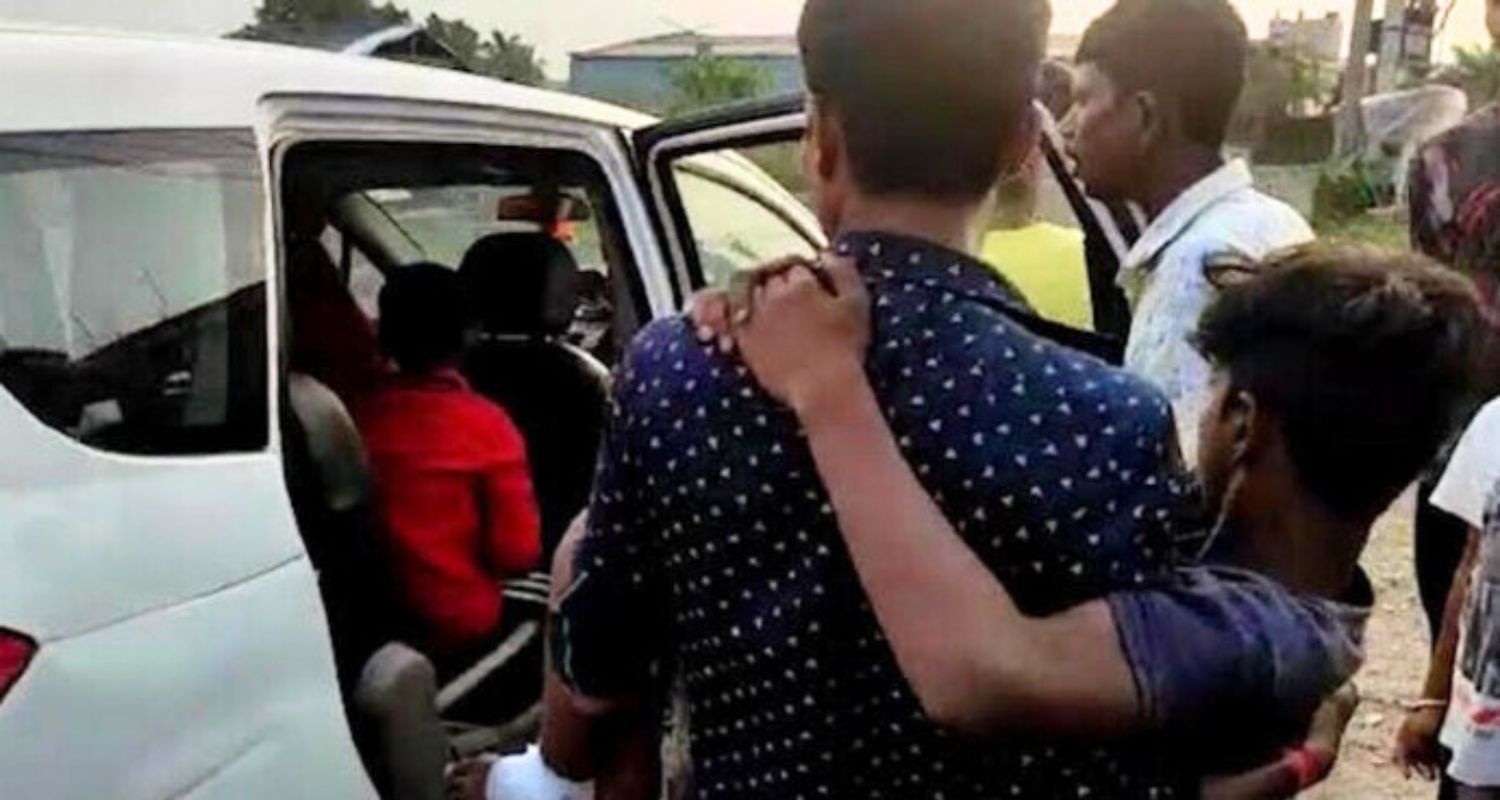
In West Bengal, a chilling pattern of violence has quietly unfolded over decades—one where children are not just bystanders, but frequent and tragic casualties. A BBC Eye investigation has uncovered that at least 565 children have been killed or injured by crude, home-made bombs in the state over the last thirty years. Behind each statistic lies a harrowing story: a game of cricket that ended in bloodshed, a morning prayer ritual shattered by an explosion, a child’s curiosity met with life-altering injury.
The BBC article narrates how these makeshift explosives—locally known as peto—are deeply intertwined with West Bengal’s turbulent political landscape, used by rival factions as weapons of intimidation and tools of control. Hidden in gardens, abandoned homes, or simply discarded in fields, these bombs are often stumbled upon by unsuspecting children during play. With over 60% of the incidents occurring in outdoor public spaces, the threat is pervasive—and tragically normalized in many rural and semi-urban parts of the state.
This is not just a tale of accidental blasts—it is the grim fallout of a legacy of political vendetta, where poor and marginalized families bear the brunt. As violence becomes a political currency and accountability remains elusive, Bengal’s children continue to pay the heaviest price—often with their limbs, their futures, and sometimes, their lives.
According to the National Crime Records Bureau (NCRB), West Bengal reported more than 1,500 injuries and over 200 deaths due to crude bomb incidents between 2010 and 2023. In 2022 alone, Bengal accounted for more than half of the country’s crude bomb-related political violence.
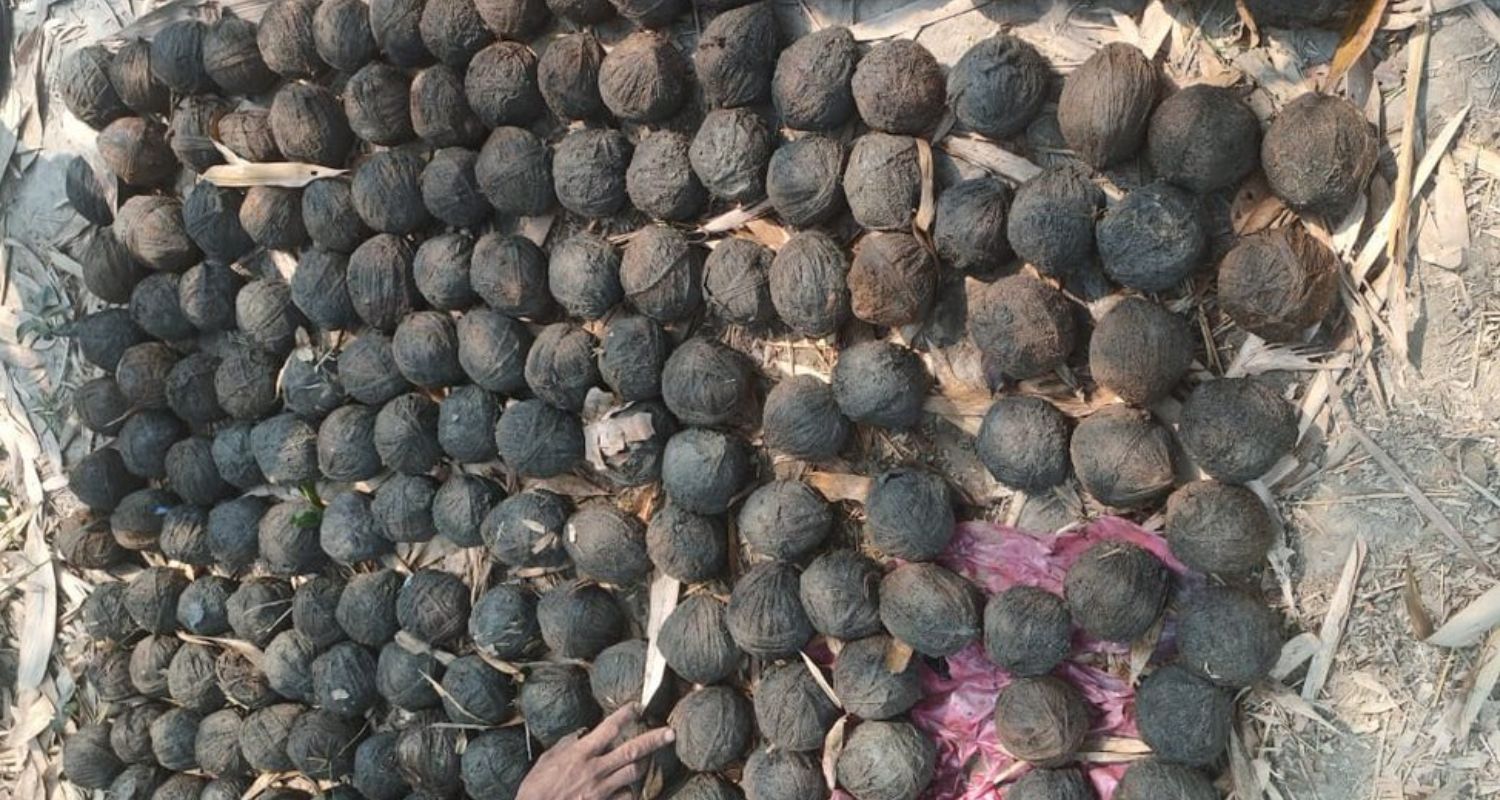
Crude bombs—improvised explosive devices made with low-cost materials—have long been part of Bengal’s grassroots political arsenal. Stockpiled before elections, hidden during disputes, and sometimes simply forgotten, these devices turn rural homes and fields into ticking time bombs.
The invisible playgrounds of rural Bengal, the price of political apathy
In a region where childhood is often shadowed by poverty, the lack of public play spaces pushes children toward unsafe environments—railway tracks, empty fields and derelict buildings.
“Abandoned homes like the one in Dinutola are a child’s wonderland—until they turn deadly,” says a child rights activist from Malda. “And in politically sensitive zones, danger is often buried in plain sight.”
The parents of the injured children now sit vigil at the hospital, uncertain whether their child will walk again—both physically and emotionally unscarred. “He just wanted to play,” the father of the critically injured boy told BBC. “Who hides bombs where children live?”
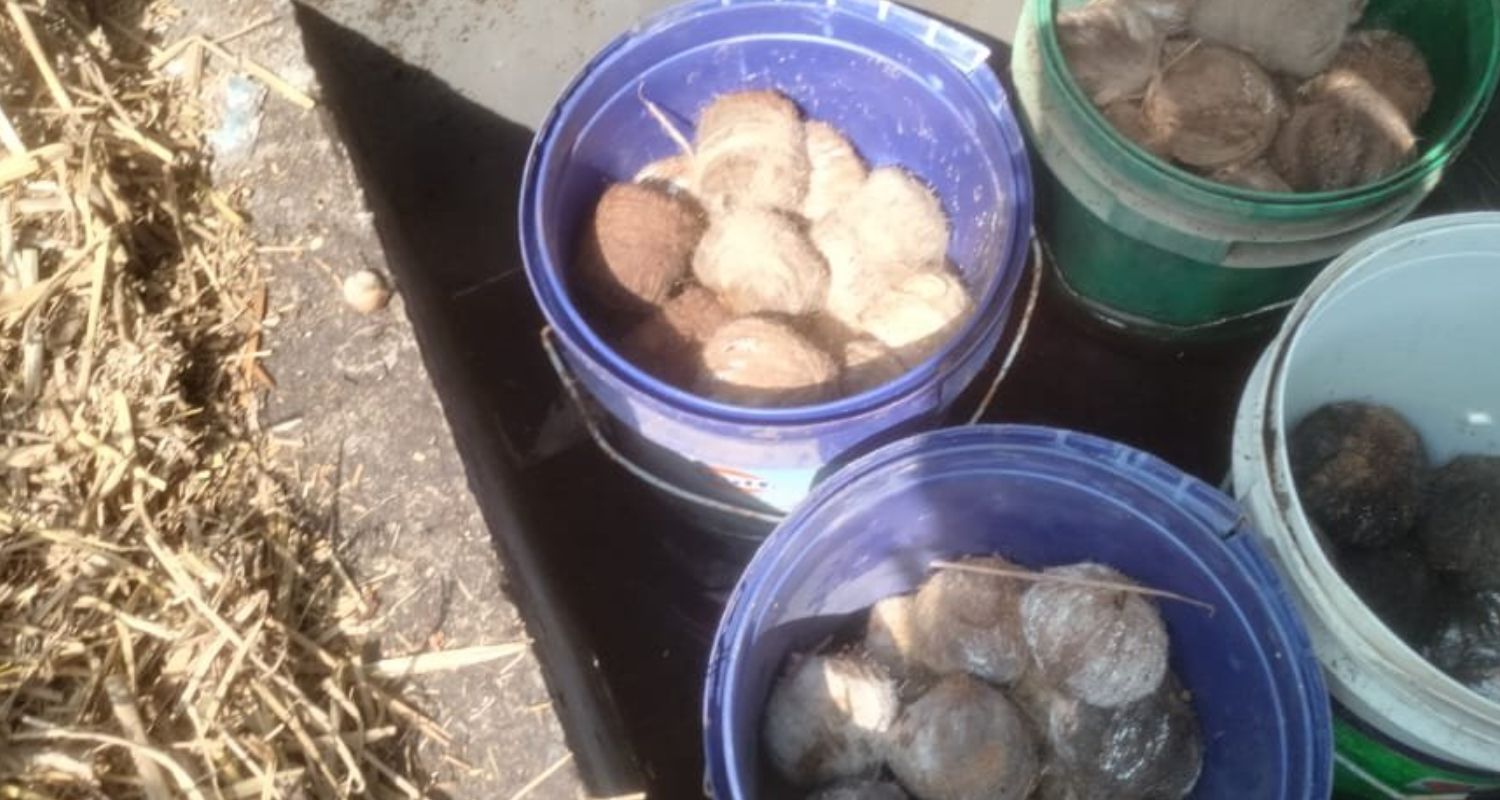
Despite the rising number of incidents, calls for systemic reform have largely gone unheeded. Experts and child protection agencies have repeatedly urged the government to conduct comprehensive audits of abandoned properties, particularly before and after elections, implement stringent crackdowns on illegal arms manufacturing and hoarding, run community awareness programmes so villagers and children can recognise and report suspicious objects and enforce institutional accountability—holding local leaders and law enforcement responsible for oversight failures.
But progress has been piecemeal and political will—hesitant. Many argue that deep-rooted patronage systems and political turf wars make aggressive clean-ups politically inconvenient.
A ‘toy’ that kills: A state’s reckoning
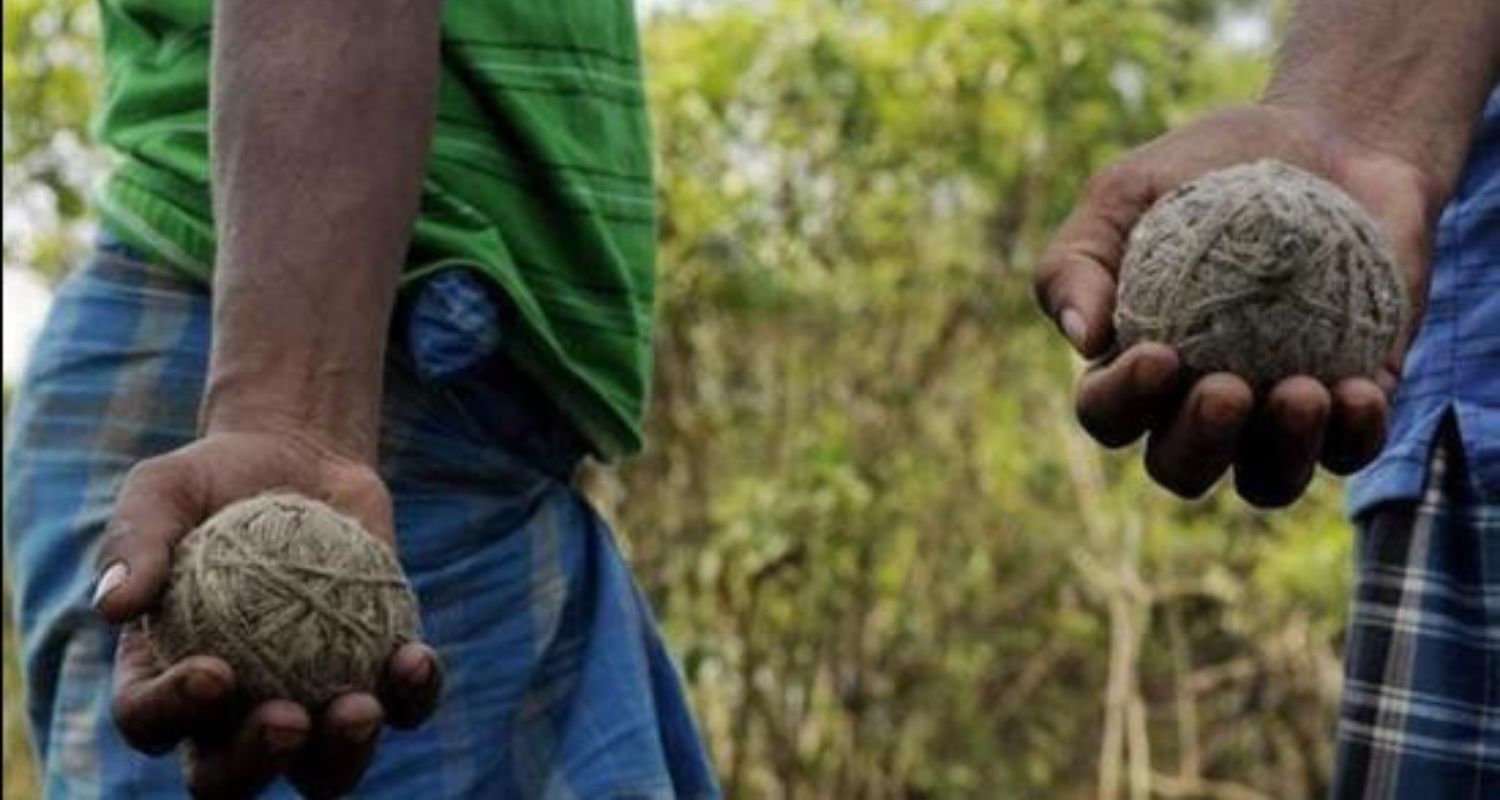
The explosion in Dinutola may soon vanish from headlines. But for the families affected—and the thousands more living under similar threats—it serves as a stark reminder: in parts of rural Bengal, a child’s innocent game can end in catastrophe.
Until a coordinated, non-partisan approach is adopted—anchored in safety, accountability and child protection—India’s eastern state will continue to see its children pay the heaviest price for adult conflicts.
“These are not just accidents,” says a former IPS officer who served in Bengal. “These are predictable outcomes of a system that has normalized explosives as tools of politics. And children are the unintended, but inevitable, casualties.”
By Pranab Mondal

